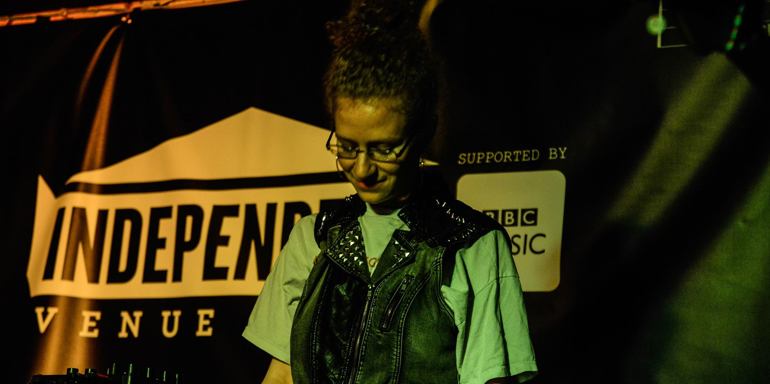Leeds Conservatoire graduate Jemma Freese has been announced as one of eight participants on the fifteenth edition of Serious’ prestigious talent development programme – Take Five.
The scheme will allow Jemma to take time out from an extremely busy schedule with bands such as J Frisco, freese trio, DOMI and Maxïmo Park to participate in a week-long residency with ongoing mentorship, funding and marketing support.
Alumni from the programme include the likes of Seb Rochford, Nubya Garcia, Yazz Ahmed alongside Leeds Conservatoire graduates Al MacSween, Chris Sharkey, Dave Kane, James Mainwaring, Kim Macari, Matt Anderson, Matthew Bourne, Phil Meadows and Pete Wareham.
Blurring the porous boundary between jazz/improvised music and other genres, Jemma specialised in both Popular Music Composition and Jazz Vocals during her time at Leeds Conservatoire. We spoke with Jemma to find out more about the scheme alongside her approach to genre.
How does it feel to be selected as one of the eight artists on Serious’ Take Five programme?
It feels quite surreal to be honest. I am very aware of Serious' reputation so being selected doesn’t feel real! I have massive issues with imposter syndrome, so receiving this news is quite a shock.
This scheme is different to others in that you have to first be nominated to apply, so to be nominated (I still don't know who nominated me.. haha) is a big deal.
I am really excited but also a little nervous to meet the other musicians selected; it's always exciting to meet new people - especially those who are from different places and have different musical tastes and play different instruments.
Serious have done especially well in the diversity of who they chose for this year’s scheme, so I can imagine I will learn a lot when I get to meet them all. But I am also nervous because of the massive social anxiety I have! It’s a massive honour - not one I will ever forget.
What will the programme involve?
The programme will involve a 1-week residency in a cottage on the outskirts of London with everyone selected plus members of Serious who manage this project. There will be people from the jazz industry (labels, venue owners, etc.) coming to talk about their work and also to talk to us. So all in all a hell of a lot of networking.
We will also each bring in a composition for everyone to play on, so beforehand everyone will have to adapt their composition for everyone's instruments - this can be as specific or as loose an interpretation as we want. It can be hand written specific parts, or chord symbols, or descriptions etc.
We will also receive some funding to go towards paying us for this residency, as we will be taking time off work, and we will receive mentoring from whomever suits us best for what we need. Serious are also there for any support we need, which is incredibly helpful.

How important is it to take time out from your usual busy touring/recording schedule?
Sometimes I forget how important it is to just do something solo - something that is my voice alone and is entirely me. It is also really good to have breaks from this, play with others and collaborate, otherwise I can get way too deep into my own head. It's just a balance like everything else I guess!
I'm excited for this as I am currently experimenting with rap/spoken word which I lack confidence in. This scheme is the ideal opportunity to challenge yourself and what you do.
You specialised in Popular Composition and Jazz Vocals at LCoM. How did this training impact on your creative approach?
I felt unlimited and uninhibited in terms of what I wanted to create because I wasn't fitting myself into a box of either a 'pop' or 'jazz' musician. I went to extra classes in both popular music composition and jazz performance, which meant I learnt more than I was ‘supposed’ to and was exposed to different music as part of the courses, and started creating music and bands with people from both courses. Both courses involved writing music, and so gave me the chance to practise writing in these different styles.
Your music often explores the porous boundary between ‘jazz’, ‘improvised music’ and other genres. What advice would you give to musicians working in this area?
The advice I would give is play, perform and compose with as many different people as possible, even if you think it won't work - there will be something to learn.
The boundaries of genres are as blurred and crossed as ever, so no one should ever feel like they 'aren't' allowed to do something within a certain genre. Scat on a pop song, play 2 chords in a jazz song, use laptops and synths in jazz and use brass sections in pop etc.
Taking risks in changing up genres or swapping genre stereotypes into another genre can be extremely interesting and fresh. I guess the most important thing is do something which feels natural and represents you.







